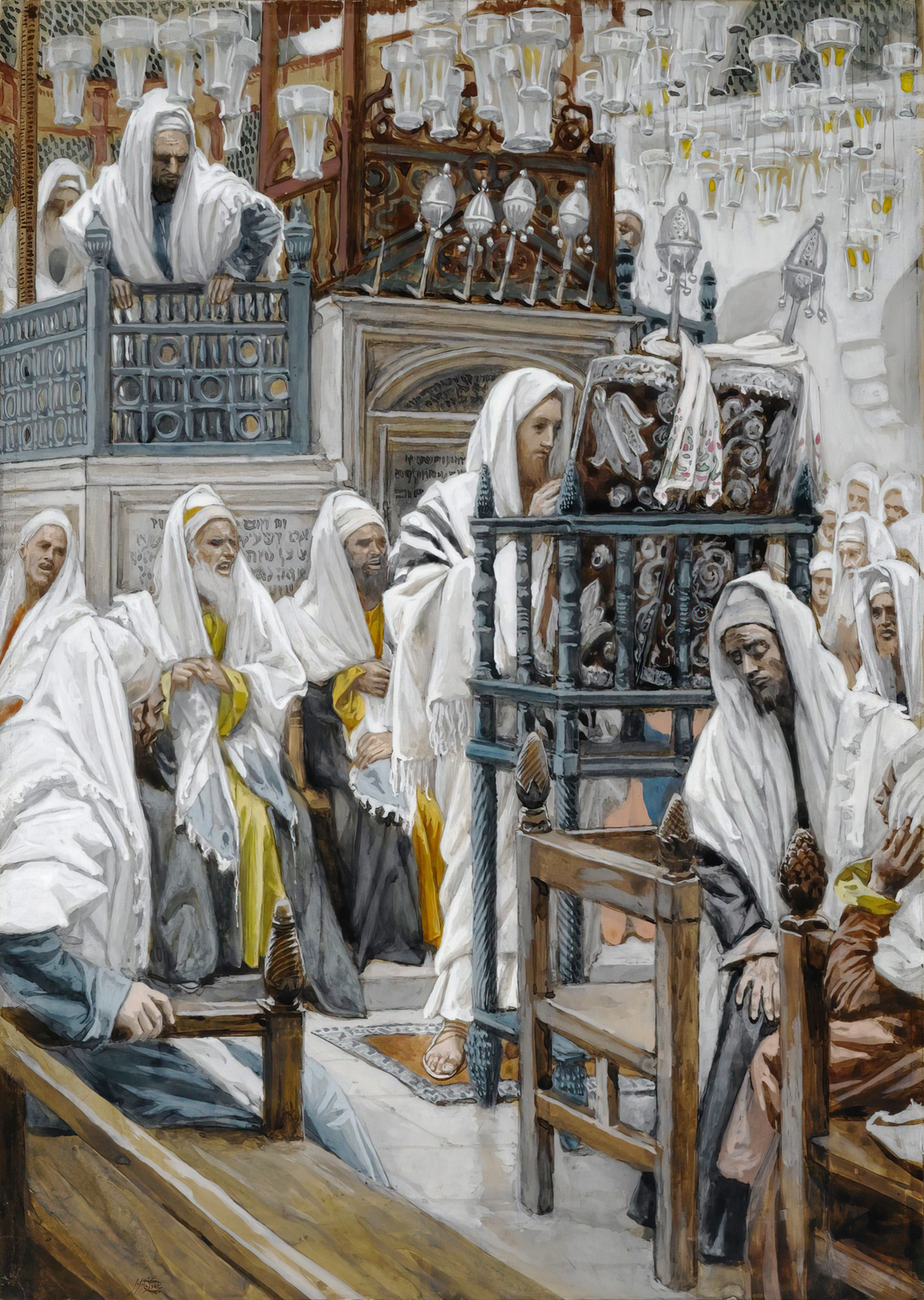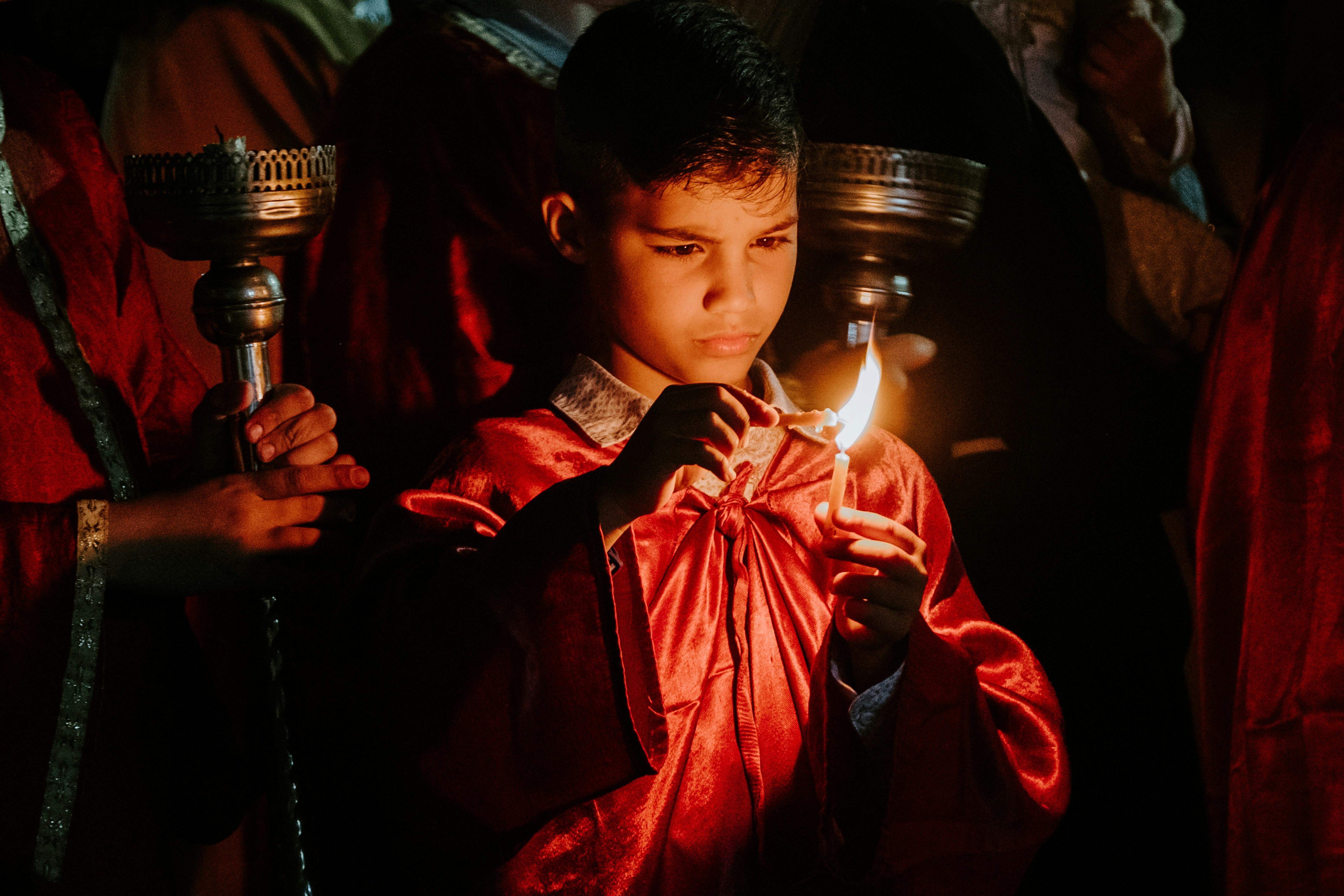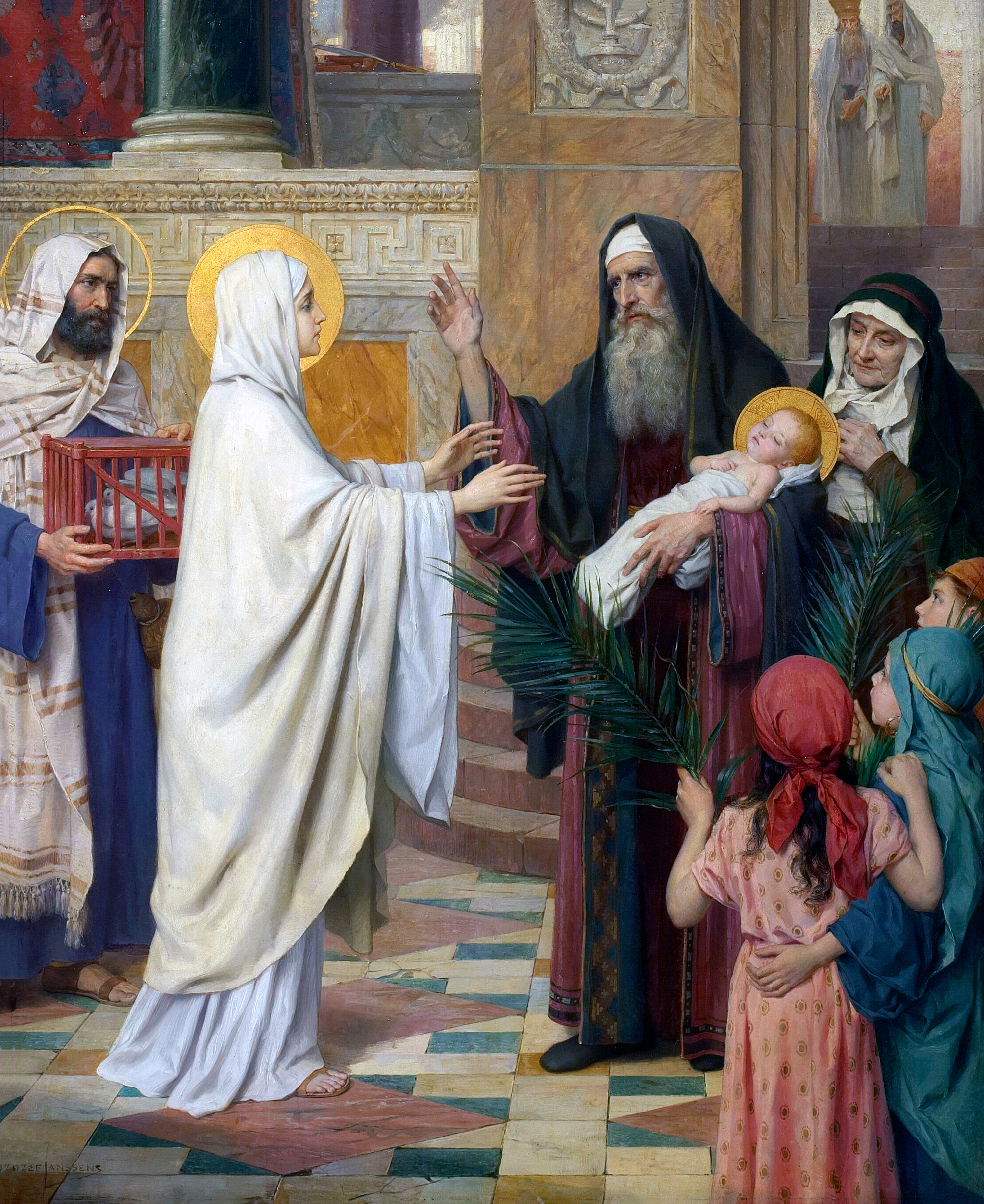In the USCCB translation of Mark’s Gospel, we read, “..they had no opportunity even to eat.” My Bible translation uses the word “leisure” in place of opportunity. Honestly, it seems like a better fit as I often lack making time for even the simplest things in life—like nourishment (physical and spiritual). My days are hectic and crazy, as I’m sure many of you can relate. I have numerous responsibilities at home, work, with my extended family, church, and community. All of which are very enjoyable, so it’s hard for me to say no and choose where to spend my time and energy.
You’d think something like eating would be a priority for most of us since we all need it to exist. However, the point Jesus is making in Mark’s Gospel goes far beyond what they couldn’t do and focuses more on what they should be doing. Returning from their ministerial endeavors, they are excited to share what they’d experienced, but also very exhausted (and I’m guessing from the passage, very hungry).
Jesus’ response to their busyness, even in their triumphs and accomplishments, was to “Come away by yourselves to a deserted place and rest a while.” How often does Jesus nudge our weary hearts with this same directive? We need to rest; we need leisure. In fact, it’s a commandment to make every Sunday a day of rest and to offer it to God.
We observe Jesus in the Scriptures modeling this act of retreating to pray, demonstrating to us the need to make quiet and special time for prayer. A subtle moment I’ve missed while reading this Gospel is that the Apostles embark on a boat to a deserted place to rest, but if you read carefully, you’ll notice that they didn’t go without Jesus. We know this because just before He sees the vast crowd that has gone before them to this, now not-so-deserted place, Mark writes, “Jesus disembarks”. In other words, He exited the boat.
I remember when my children were little, my lunch was often just the scraps off their plates. Sometimes when I come to Jesus in prayer, like the apostles, I can get wrapped up in telling Him all the things I’ve done and then jump right into all my needs. I’m willing to have the scraps of what Jesus has to offer me, but Jesus wants to give me a full-course gourmet meal! – As made evident in the Eucharistic, which, of course, is the most amazing way He gives us Himself as true food for our souls. He wants us to be present and attentive, enjoying every bite of our time with Him.
Jesus has so much to teach us. He longs to guide and lead us to follow His ways. Much of our hectic, overwhelmed feeling would be less burdensome if we first, every single day, made time to go away with Jesus to a quiet and deserted place and rest a while.
En la traducción del Evangelio de Marcos de la USCCB, leemos: “…no les dejaban tiempo ni para comer”. Mi traducción de la Biblia utiliza la palabra “ocio” en lugar de “dejaban”. Honestamente, parece que se ajusta mejor a esto, ya que a menudo no tengo tiempo para las cosas más sencillas de la vida, como la alimentación (física y espiritual). Mis días son frenéticos y locos, como seguramente muchos de ustedes pueden entender. Tengo numerosas responsabilidades en casa, en el trabajo, con mi familia extendida, la iglesia y la comunidad. Todas son muy agradables, por lo que me resulta difícil decir que no y elegir dónde invertir mi tiempo y energía.
Uno pensaría que algo como comer sería una prioridad para la mayoría de nosotros, ya que todos lo necesitamos para sobrevivir. Sin embargo, el punto que Jesús está planteando en el Evangelio de Marcos va mucho más allá de lo que no podían hacer y se centra más en lo que deberían estar haciendo. Al regresar de sus labores ministeriales, estaban entusiasmados por compartir lo que habían experimentado, pero también muy exhaustos (y supongo, por el pasaje, que tenían mucha hambre).
La respuesta de Jesús a su ajetreo, incluso en sus triunfos y logros, fue: “Vengan conmigo a un lugar solitario, para que descansen un poco”. ¿Con qué frecuencia Jesús da un empujoncito a nuestros corazones cansados con esta misma directiva? Necesitamos descansar; necesitamos tiempo libre. De hecho, es un mandamiento hacer de cada domingo un día de descanso y ofrecérselo a Dios.
Vemos a Jesús en las Escrituras modelando este acto de retirarse a orar, demostrándonos la necesidad de hacer un tiempo tranquilo y especial para la oración. Un momento sutil que me he perdido al leer este Evangelio es que los Apóstoles se embarcan en un barco hacia un lugar desierto para descansar, pero si lees con atención, notarás que no fueron sin Jesús. Sabemos esto porque justo antes de que vea a la gran multitud que los ha precedido a este lugar, ahora no tan solitario, Marcos escribe: “Jesús desembarcó”. En otras palabras, salió del barco.
Recuerdo que cuando mis hijos eran pequeños, mi almuerzo a menudo consistía en las sobras de sus platos. A veces, cuando vengo a Jesús en la oración, como los apóstoles, puedo envolverme en contarle todas las cosas que he hecho y luego pasar directamente a todas mis necesidades. Estoy dispuesta a tener las sobras de lo que Jesús tiene para ofrecerme, ¡pero Jesús quiere darme una comida gourmet completa! – Como se evidencia en la Eucaristía, que, por supuesto, es la forma más asombrosa en que se nos da a Sí mismo como verdadero alimento para nuestras almas. Él quiere que estemos presentes y atentos, disfrutando cada bocado de nuestro tiempo con Él.
Jesús tiene tanto que enseñarnos. Anhela guiarnos y conducirnos a seguir Sus caminos. Gran parte de nuestro sentimiento frenético y abrumador sería menos pesado si primero, todos los días, nos tomáramos un tiempo para ir con Jesús a un lugar tranquilo y solitario para descansar un rato.
 Allison Gingras (www.ReconciledToYou.com ) shares an everyday Catholic faith with humor and honesty. Her writing includes The Handy Little Guide to Novenas (OSV), Encountering Signs of Faith (Ave Maria Press), and the Stay Connected Journals for Catholic Women (Our Sunday Visitor), with a new edition “Jesus Heals,” coming in 2025. Allison is the Director of Digital Evangelization for Family Rosary USA.
Allison Gingras (www.ReconciledToYou.com ) shares an everyday Catholic faith with humor and honesty. Her writing includes The Handy Little Guide to Novenas (OSV), Encountering Signs of Faith (Ave Maria Press), and the Stay Connected Journals for Catholic Women (Our Sunday Visitor), with a new edition “Jesus Heals,” coming in 2025. Allison is the Director of Digital Evangelization for Family Rosary USA.Feature Image Credit: nad_dyagileva, pixabay.com/photos/book-lilac-flowers-cocoa-drink-3387071/
The views and opinions expressed in the Inspiration Daily blog are solely those of the original authors and contributors. These views and opinions do not necessarily represent those of Diocesan, the Diocesan staff, or other contributors to this blog.


 Deanna G. Bartalini, M.Ed.; M.P.A., is a certified spiritual director, writer, speaker and content creator. The
Deanna G. Bartalini, M.Ed.; M.P.A., is a certified spiritual director, writer, speaker and content creator. The 


 Kimberly Andrich writes from the perspective of having a hidden, chronic illness and experiencing a deep, continuous conversion through being yoked to Jesus in the day-to-day trials and joys of life. She is a wife, mother of 5, and daughter of the King. Kimberly also writes for
Kimberly Andrich writes from the perspective of having a hidden, chronic illness and experiencing a deep, continuous conversion through being yoked to Jesus in the day-to-day trials and joys of life. She is a wife, mother of 5, and daughter of the King. Kimberly also writes for 


 Former NPS Park Ranger, Catholic educator, and Youth Minister, Melissa Lucca now spends her days evangelizing family and neighbors as a stay-at-home mom. She holds an MA in Theology from the Augustine Institute and pursues personal study in her spare time. Melissa loves Ignatian Spirituality, Mother Mary, and rock climbing. If you don’t hear her and her kiddo laughing at home, then they are probably out on an adventure!
Former NPS Park Ranger, Catholic educator, and Youth Minister, Melissa Lucca now spends her days evangelizing family and neighbors as a stay-at-home mom. She holds an MA in Theology from the Augustine Institute and pursues personal study in her spare time. Melissa loves Ignatian Spirituality, Mother Mary, and rock climbing. If you don’t hear her and her kiddo laughing at home, then they are probably out on an adventure!
 Nicole Berlucchi is a faith and family blogger (
Nicole Berlucchi is a faith and family blogger (
 David Dashiell is a freelance author and editor in the Nashville, Tennessee area. He has three children, a degree in theology, and enjoys writing about philosophy, theology, culture, music, and comedy. You can find his personal blog, Serious Daydreams, on
David Dashiell is a freelance author and editor in the Nashville, Tennessee area. He has three children, a degree in theology, and enjoys writing about philosophy, theology, culture, music, and comedy. You can find his personal blog, Serious Daydreams, on 
 Pamela Kavanaugh is a grateful wife, mother, and grandmother who has dedicated her professional life to Catholic education. Though she has done her very best to teach her students well in the subjects of language and religion, she knows that she has learned more than she has taught. She lives, teaches, and writes in southwest suburban Chicago.
Pamela Kavanaugh is a grateful wife, mother, and grandmother who has dedicated her professional life to Catholic education. Though she has done her very best to teach her students well in the subjects of language and religion, she knows that she has learned more than she has taught. She lives, teaches, and writes in southwest suburban Chicago.




 Tami Urcia is a midwestern gal from a large Catholic family. As a young adulthood she was a missionary in Mexico, where she studied theology and philosophy. After returning stateside bilingual, she gained a variety of work experience, traveled extensively and finished her Bachelor’s Degree at Brescia University. She loves organizing and simplifying things, watching her children play sports, deep conversations with close family and friends and finding unique ways to brighten others’ day with Christ’s love. She works full time at Diocesan in the Software Department and manages the Inspiration Daily reflections. She is also a guest blogger on
Tami Urcia is a midwestern gal from a large Catholic family. As a young adulthood she was a missionary in Mexico, where she studied theology and philosophy. After returning stateside bilingual, she gained a variety of work experience, traveled extensively and finished her Bachelor’s Degree at Brescia University. She loves organizing and simplifying things, watching her children play sports, deep conversations with close family and friends and finding unique ways to brighten others’ day with Christ’s love. She works full time at Diocesan in the Software Department and manages the Inspiration Daily reflections. She is also a guest blogger on 